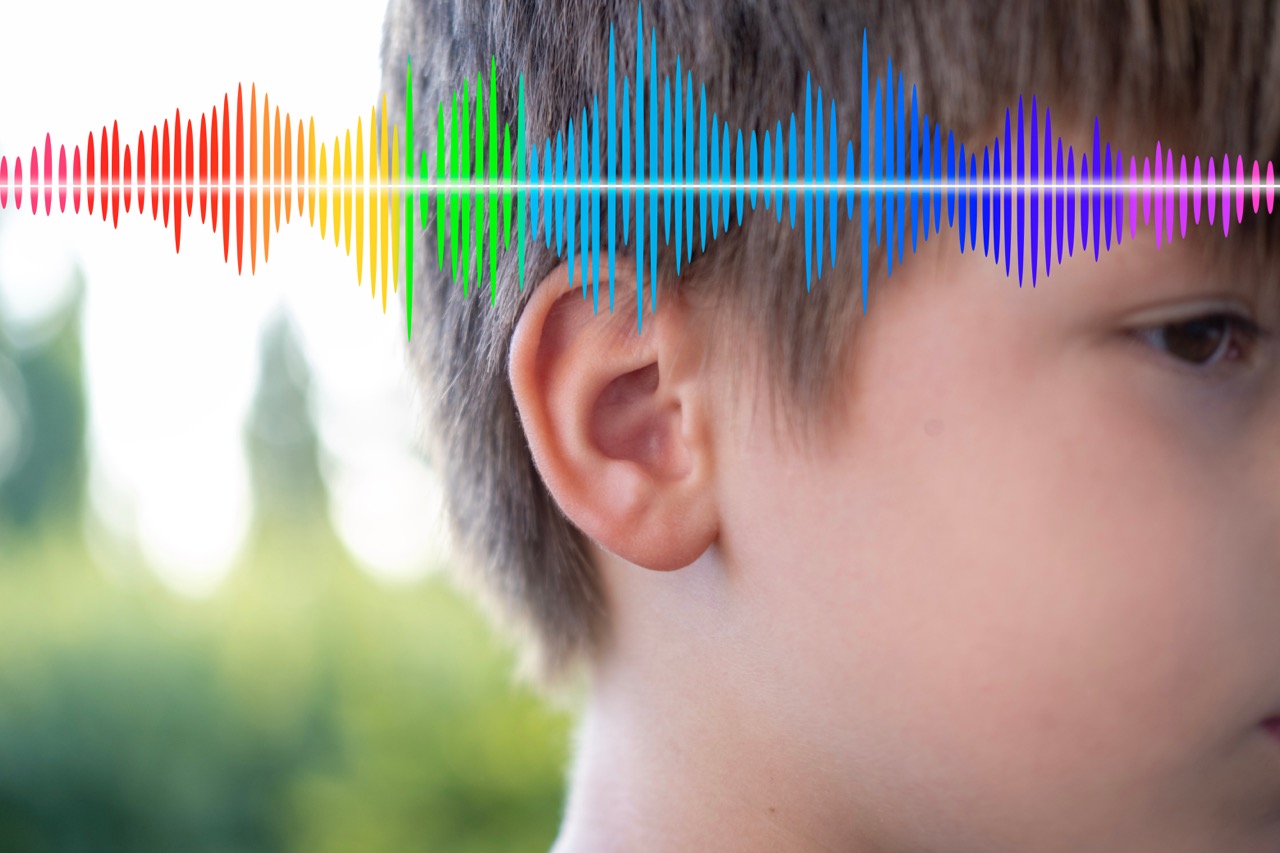Untreated Ear Infection in Children: Risks Every Parent Should Know
Ear infections rank among the most common childhood illnesses that parents encounter during early years. While many cases resolve naturally, some require professional medical attention to prevent serious complications. Understanding what happens with an untreated ear infection in children helps families make informed healthcare decisions.
Most mild ear infections improve without intervention, but leaving more serious cases unchecked creates unnecessary risks. Additionally, knowing when symptoms require medical evaluation protects children from potential complications. All Kidz Urgent Care provides expert child-focused care for ear infections when families need professional guidance and treatment.
This blog covers the causes behind frequent childhood ear infections, potential risks of delayed treatment, warning symptoms, and when urgent care becomes necessary for protecting your child’s health.
Why Ear Infections Are Common in Kids
Children experience ear infections much more frequently than adults due to their developing anatomy and immune systems. The eustachian tubes connecting the middle ear to the throat are shorter and more horizontal in young children. This structure makes drainage more difficult and allows bacteria to travel more easily into the middle ear space.
Seasonal colds, allergies, and upper respiratory infections create congestion that blocks normal fluid drainage from the ears. Daycare and school exposure increases children’s contact with viruses and bacteria that cause respiratory illnesses. Additionally, young immune systems are still learning to recognize and fight off common infections effectively.
Statistics show that five out of six children will have at least one ear infection by age three. This high incidence makes ear infections one of the most frequent reasons parents seek medical care for children. Moreover, untreated ear infection in children becomes more concerning when symptoms persist or worsen despite home care attempts.
Dangers of an Untreated Ear Infection in Children
When an untreated ear infection in children progresses without medical intervention, several complications can develop over time. The infection may spread beyond the middle ear to surrounding structures including the mastoid bone behind the ear. Additionally, persistent fluid buildup creates ongoing discomfort and temporary hearing difficulties that affect daily activities.
While some mild cases resolve spontaneously within a few days, leaving more serious infections unchecked significantly increases complication risks. Pain intensifies as pressure builds behind the eardrum from accumulated fluid and pus. Furthermore, prolonged infection can lead to eardrum perforation as pressure becomes too great for the thin membrane to withstand.
Professional evaluation at pediatric urgent care helps determine whether an untreated ear infection in children requires antibiotic treatment or simply monitoring with supportive care. Early intervention prevents minor problems from developing into serious conditions that require extensive treatment or hospitalization.
Signs Your Child’s Ear Infection May Be Serious
Recognizing warning symptoms helps parents identify when ear infections require immediate medical attention rather than home observation. Young children may not articulate their discomfort clearly, making it essential for parents to watch for behavioral and physical changes. Additionally, certain symptoms indicate that infections are progressing beyond mild cases manageable at home.
Watch for these concerning signs:
- High fever above 102°F that persists despite fever-reducing medications
- Severe irritability or inconsolable crying that seems different from typical fussiness
- Ear pulling or rubbing that increases in frequency and intensity
- Fluid or pus drainage from the ear canal indicating possible eardrum rupture
- Hearing difficulties that seem more pronounced than expected with congestion
- Swelling or redness behind the ear near the mastoid bone
- Sleep disruption with frequent waking due to pain or discomfort
- Poor appetite and refusing bottles in infants and young children
Parents should schedule a doctor’s visit when symptoms persist longer than 48 hours without improvement. Furthermore, any sudden worsening of symptoms warrants immediate medical evaluation to prevent complications.
Complications of Untreated Ear Infections in Children
Understanding potential complications emphasizes why timely medical care matters for childhood ear infections. While most cases resolve without serious problems, delayed treatment increases risks for both immediate and lasting health concerns. Additionally, certain complications can affect children’s development and quality of life for years.
Short-Term Complications
Ongoing pain becomes increasingly difficult to manage as infection progresses without appropriate treatment. Temporary hearing loss develops when fluid accumulates behind the eardrum, muffling sounds and making communication challenging. Balance issues may occur as middle ear inflammation affects the vestibular system that helps maintain equilibrium.
Children may experience eardrum perforation when pressure from infected fluid becomes too great for the thin membrane. While perforations often heal naturally, they require monitoring to prevent chronic problems. Additionally, severe pain can disrupt sleep patterns and affect appetite, leading to temporary developmental concerns.
Long-Term Complications
Persistent hearing loss can affect speech and language development when ear infections occur frequently during critical early years. Children may struggle to hear clearly in classrooms or noisy environments, impacting their academic performance. Repeated infections can cause permanent changes to middle ear structures that affect hearing permanently.
Mastoiditis occurs when infection spreads to the mastoid air cells in the temporal bone behind the ear. This serious complication requires hospitalization and intravenous antibiotics to prevent further spread. Rarely, untreated ear infection in children can spread to the membranes surrounding the brain and spinal cord, causing meningitis. Inadequately treated mastoiditis can result in deafness, blood poisoning, meningitis, brain abscess, or death.
How Pediatric Urgent Care Helps
Pediatric urgent care provides timely evaluation and treatment for ear infections without the long waits typical of emergency rooms. Quick diagnosis through gentle ear examinations helps determine whether antibiotics are necessary or if watchful waiting with supportive care suffices. Additionally, same-day visits ensure children receive prompt pain relief and appropriate treatment recommendations.
Healthcare providers at urgent care facilities use specialized pediatric equipment to examine small ear canals comfortably. They assess infection severity, check for complications, and provide clear guidance for home management strategies. Furthermore, parent education about warning signs helps families monitor symptoms confidently between appointments.
All Kidz Urgent Care offers child-centered care that reduces anxiety for young patients during medical examinations. Our experienced team understands childhood ear infections and provides compassionate treatment tailored to each child’s specific needs. Moreover, we coordinate care with primary pediatricians to ensure continuity and appropriate follow-up for untreated ear infection in children that required intervention.
Treatment Options for Ear Infections
Appropriate treatment depends on infection severity, child’s age, and presence of concerning symptoms that indicate bacterial involvement. Healthcare providers carefully evaluate each case to determine the most effective approach for individual children. Common treatment strategies include:
- Over-the-counter pain relief using acetaminophen or ibuprofen to reduce discomfort and fever
- Antibiotic medications when bacterial infection is confirmed or symptoms are severe
- Watchful waiting for mild cases in children over two years with minimal symptoms
- Ear tubes for recurrent infections that occur frequently despite preventive measures
- Warm compress application to reduce pain and promote comfort at home
- Adequate rest and hydration to support immune system function during recovery
Treatment decisions consider multiple factors including recent antibiotic use and local resistance patterns. Additionally, providers discuss expected improvement timelines and warning signs that warrant callback or follow-up evaluation for untreated ear infection in children.
Preventing Ear Infections in Kids
Prevention strategies significantly reduce the frequency and severity of ear infections in young children, helping families avoid repeated medical visits. Breastfeeding provides important protection from infections as baby’s immune system develops, including lower risk of ear infections. Exclusive breastfeeding for at least three months and longer duration of breastfeeding were associated with lower risk of ear infections.
Receiving recommended vaccines such as flu vaccine and pneumococcal vaccine helps prevent ear infections. These immunizations protect against common bacteria that cause middle ear infections. Additionally, reducing exposure to secondhand smoke protects delicate respiratory passages from irritation that increases infection susceptibility.
Frequent handwashing remains the best way to protect children against cold and flu viruses that often precede ear infections. Limiting daycare attendance during outbreak periods reduces exposure to respiratory illnesses. Keeping ears dry after swimming by tilting head to drain water prevents moisture buildup that encourages bacterial growth.
When to Visit All Kidz Urgent Care
Recognizing situations that require professional medical evaluation helps parents seek timely care for their children’s ear infections. While many mild cases improve with home management, certain symptoms indicate the need for urgent care assessment and treatment. Seek immediate medical attention for:
- Persistent fever with ear pain lasting longer than 48 hours without improvement
- Pus or fluid draining from the ear canal indicating possible perforation
- Repeated infections within months suggesting need for preventive strategies or ear tubes
- Hearing concerns or speech delays that may result from chronic fluid accumulation
- Swelling or tenderness behind the ear that could indicate mastoiditis
- Severe pain that interferes with eating, sleeping, or normal activities
All Kidz Urgent Care provides same-day pediatric urgent care in Torrance with flexible scheduling including evenings and weekends. Our specialized focus on children ensures age-appropriate examination techniques and treatment plans for untreated ear infection in children requiring professional intervention.
Protecting Your Child’s Ear Health
Understanding the risks of untreated ear infection in children empowers parents to seek appropriate medical care when needed. While many infections resolve naturally, recognizing warning signs prevents serious complications that can affect hearing and development.
Trust pediatric urgent care when uncertain whether symptoms require professional evaluation. Timely intervention protects children from unnecessary pain and potential long-term consequences. Our experienced team provides reassurance and expert guidance that keeps kids healthy and happy.
Visit us at: 2927 Rolling Hills Road, Torrance, CA 90505
Call us: +1 310-292-0054
Email: contactus@allkidzurgentcare.com




